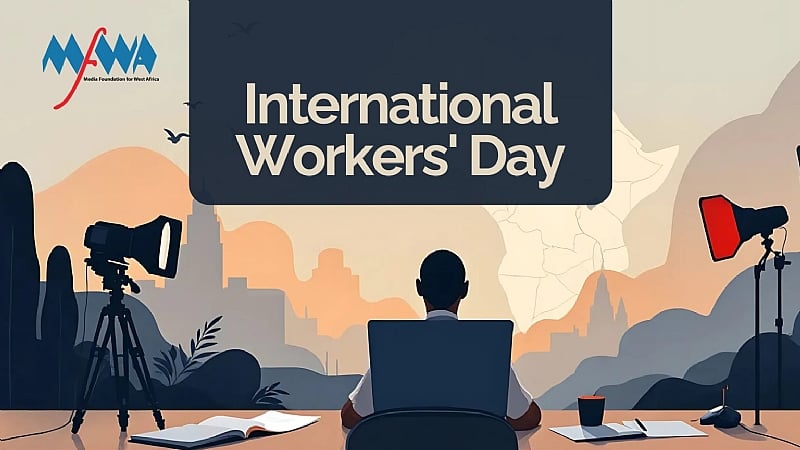The Precarious State of Journalism in West Africa: A Call for Action on Workers’ Day 2025
As West Africa commemorates Workers’ Day 2025 under the theme "Striving for Peace and Stability to Drive Industrialisation, Trade, and Decent Work for Social Justice," the Media Foundation for West Africa (MFWA) brings to the forefront the pressing economic challenges plaguing the journalism profession in the region. A recent study conducted in Ghana, a nation often considered a beacon of press freedom in West Africa, has unveiled a troubling reality: journalists are grappling with inadequate remuneration, precarious job security, and a lack of essential benefits like life insurance. These issues, while prominently observed in Ghana, are symptomatic of broader structural and financial vulnerabilities that permeate the media landscape across the 16 nations of West Africa. The MFWA asserts that addressing these challenges is not merely a matter of improving working conditions; it is crucial for safeguarding the very foundations of democratic governance, transparency, and accountability, all of which rely on a vibrant and independent media.
The financial fragility of media organizations is a key factor contributing to the precarious situation faced by journalists. Declining advertising revenue, coupled with the rise of digital platforms, has forced many media outlets to downsize or shut down entirely, leading to increased unemployment among media professionals. This precarious economic environment creates fertile ground for exploitation, making journalists vulnerable to external pressures and potentially compromising their journalistic integrity. The ripple effects of these financial struggles extend far beyond individual journalists, impacting the quality of information available to the public and eroding the public’s trust in the media. The MFWA argues that a robust and independent media is not a luxury but a necessity for a healthy democracy, and its sustainability must be prioritized.
The MFWA aligns its call for action with the International Trade Union Confederation – Africa’s 2025 Workers’ Day theme, emphasizing the inextricable link between peace, decent work, and social justice. The organization posits that decent working conditions for journalists are not simply a matter of fair labor practices; they are essential for upholding democratic values. Journalists play a crucial role as watchdogs, holding power accountable, exposing corruption, and providing citizens with the information they need to make informed decisions. They also serve as educators, combating misinformation and disinformation, which are increasingly prevalent in the digital age. Without adequate support and protection, journalists are unable to effectively fulfill these vital roles, leaving societies vulnerable to manipulation and undermining democratic processes.
The MFWA calls upon governments across West Africa to recognize their responsibility in supporting a thriving media landscape. As major employers and communicators, governments can take concrete steps to bolster the financial stability of media organizations. One such measure is the equitable allocation of public service advertisements, providing a much-needed revenue stream for struggling media outlets. Beyond financial support, governments must also foster an environment that respects press freedom and protects journalists from threats, harassment, and undue influence. This includes ensuring the legal framework protects journalists and holding those who violate their rights accountable.
Civil society organizations also have a critical role to play in advocating for the rights and welfare of journalists. Initiatives like the MFWA’s West Africa Network of Activists and Media Defence Lawyers (WANAMDEL), which provides legal assistance to journalists facing legal challenges, and the Next Generation Investigative Journalism (NGIJ) Fellowships, which equips young journalists with essential skills, represent positive steps toward strengthening the profession. However, further efforts are needed to address the systemic issues that contribute to the precarious working conditions of journalists. This includes advocating for fair labor practices, promoting media literacy among the public, and fostering dialogue between media organizations, governments, and civil society.
Media owners and managers also share a responsibility in ensuring the sustainability and ethical operation of their organizations. Embracing innovation and exploring new business models are essential for navigating the changing media landscape. Leveraging digital platforms, developing effective content monetization strategies, and diversifying revenue streams can help media organizations achieve financial stability while upholding journalistic integrity. Furthermore, investing in the professional development of journalists, providing fair wages and benefits, and fostering a safe and supportive working environment are crucial for attracting and retaining talented individuals. Ultimately, the future of journalism in West Africa depends on a collaborative effort involving governments, civil society, media owners, and journalists themselves, working together to create a sustainable and thriving media ecosystem that serves the public interest.














